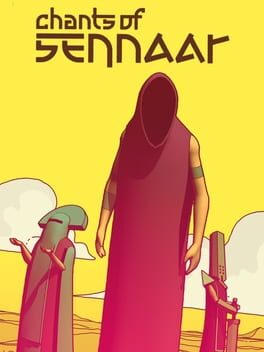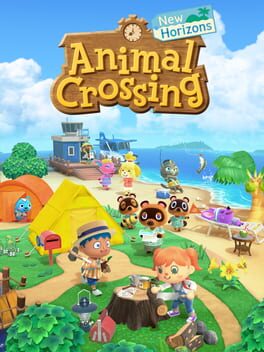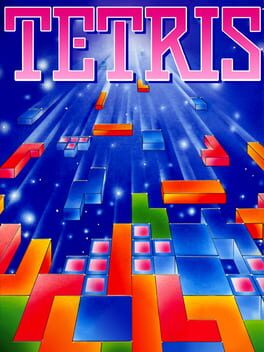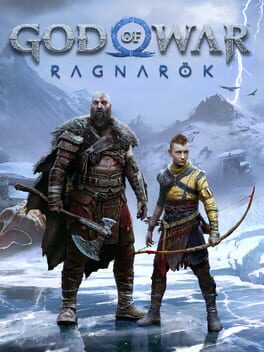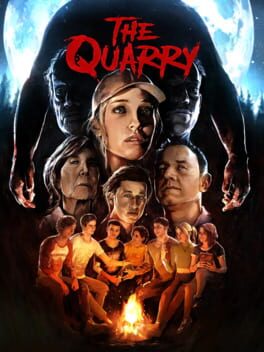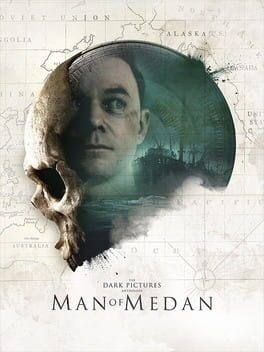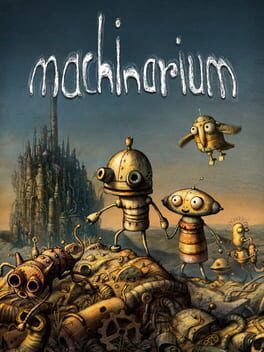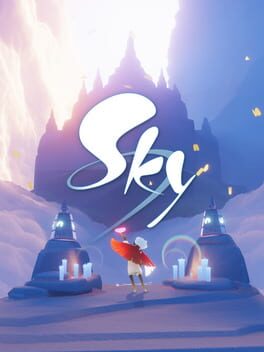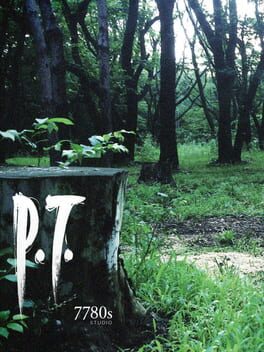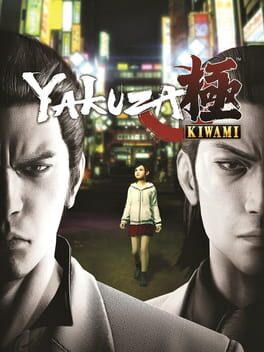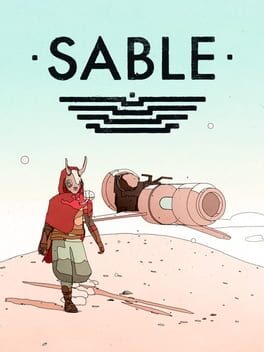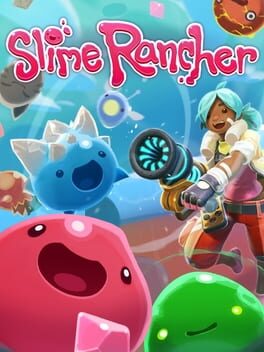rumnikub
2010
I mostly decided to play this because Alan Wake 2 looks amazing, so I wanted to see where everything started so I could build up to the sequel. I liked this a lot, but it does have a few sizable flaws.
The combat is probably the biggest thing. In short it just ends up being very repetitive. I love the idea of having to use light against the enemies, but it should definitely have been implemented with more variety in mind. The enemies are also reused a lot, so you sort of get used to fighting the same exact way every time you run into anything.
The narrative is definitely the most interesting part of Alan Wake. The structure, for one, makes for one of the most original ways of telling a story I've seen. The characters are also great, Alan himself is weirdly memorable despite initially seeming like a bland 2010's game protagonist at first.
This definitely feels like a blueprint for what would turn into Remedy's future game design philosphy. I haven't played the Max Payne games yet, so I can't really say how it is different from those, but I have just started playing Control as of writing this. I can already see how they've improved off the general gameplay loop of Alan Wake. I love the atmosphere here too, I'm a huge fan of Lynch's stuff, especially Twin Peaks, so I really loved the vibes here.
The combat is probably the biggest thing. In short it just ends up being very repetitive. I love the idea of having to use light against the enemies, but it should definitely have been implemented with more variety in mind. The enemies are also reused a lot, so you sort of get used to fighting the same exact way every time you run into anything.
The narrative is definitely the most interesting part of Alan Wake. The structure, for one, makes for one of the most original ways of telling a story I've seen. The characters are also great, Alan himself is weirdly memorable despite initially seeming like a bland 2010's game protagonist at first.
This definitely feels like a blueprint for what would turn into Remedy's future game design philosphy. I haven't played the Max Payne games yet, so I can't really say how it is different from those, but I have just started playing Control as of writing this. I can already see how they've improved off the general gameplay loop of Alan Wake. I love the atmosphere here too, I'm a huge fan of Lynch's stuff, especially Twin Peaks, so I really loved the vibes here.
2023
I'm so glad I picked this up! Chants of Sennaar was so much fun to play, discovering every new language was a joy, I wish there were like 5 more of them. I would love it if the devs made another game in a similar vein. Even though it does drag a bit in some areas, notably the second level, I was always motivated to keep going forward and never once thought of dropping the game.
This is very close from being one of my favorites in terms of puzzles games but I feel like it falls a little short. The most glaring flaw comes in the form of the non puzzle sections. Everyone seems to mention the stealth sections, and I agree. These really didn't need to be in the game, and I feel like they're why I disliked the The Fortress so much more than any other level. More than anything else these sections just feel like the devs didn't have enough confidence behind their translation mechanic, which is a shame because it works wonderfully. I do feel like they realized this later on in development, but just decided to keep the sneaking stuff in since The Fortress is designed around it.
My favorite level was either The Garden or The Laboratories, these were the ones that felt the most fleshed out. The Abbey is really just a tutorial, and Exile just kinda hands you the language which is a real shame because it might be the most visually interesting level in the game. Both the Bards and the Alchemists had really interesting languages too, and I love the context surrounding both civilizations.
I played this with my girlfriend because she loves ancient civilizations and anything related to linguistics, so she had a blast :) It was a ton of fun being super confused together and then realizing somehting at the same time. This is definitely a game worth playing with someone else.
I feel like this would have been a lot more impressive had it come out before games like Return of the Obra Dinn or Outer Wilds, those two kinda blew every other puzzle game out of the water. Despite all that though, Chants of Sennaar still offers a very engaging primary mechanic, great visual direction and environmental storytelling, as well as a satisfying gameplay loop that I wish I could experience more of. Gonna keep my eyes on this team to see what else they come up with in the future!
This is very close from being one of my favorites in terms of puzzles games but I feel like it falls a little short. The most glaring flaw comes in the form of the non puzzle sections. Everyone seems to mention the stealth sections, and I agree. These really didn't need to be in the game, and I feel like they're why I disliked the The Fortress so much more than any other level. More than anything else these sections just feel like the devs didn't have enough confidence behind their translation mechanic, which is a shame because it works wonderfully. I do feel like they realized this later on in development, but just decided to keep the sneaking stuff in since The Fortress is designed around it.
My favorite level was either The Garden or The Laboratories, these were the ones that felt the most fleshed out. The Abbey is really just a tutorial, and Exile just kinda hands you the language which is a real shame because it might be the most visually interesting level in the game. Both the Bards and the Alchemists had really interesting languages too, and I love the context surrounding both civilizations.
I played this with my girlfriend because she loves ancient civilizations and anything related to linguistics, so she had a blast :) It was a ton of fun being super confused together and then realizing somehting at the same time. This is definitely a game worth playing with someone else.
I feel like this would have been a lot more impressive had it come out before games like Return of the Obra Dinn or Outer Wilds, those two kinda blew every other puzzle game out of the water. Despite all that though, Chants of Sennaar still offers a very engaging primary mechanic, great visual direction and environmental storytelling, as well as a satisfying gameplay loop that I wish I could experience more of. Gonna keep my eyes on this team to see what else they come up with in the future!
My first Animal Crossing game, this works as a great relaxing little game. It was something that was super easy to pick up for a few weeks and then come back whenever I felt like it. I know a lot of hardcore fans didn't really love this title, but I had a ton of fun picking it up on the weekends. I'm excited to check out the older games to see what they're all about!
1989
If there ever were to be a single game that should be considered perfect, it would be Tetris. It probably stands as the more simple and flawless game to yet be made. This is probably the most important ever example of game flow, and maybe the most faultless gameplay loop ever devised. What's more impressive is how it manages to be about everything all at once. Something so simple, with no story of any kind, but it still stands for a 1000 different messages. You change the context for Tetris and it goes from being about the environment, to Soviet architecture, to life and death. You can keep building, and trying to keep the game going, but sooner or later, everything will crumble.
2022
A huge evolution off God of War (2018), and everything I'd want a sequel to be. I definitely enjoyed the first game, but this is such a massive step forward that it almost makes the first game look bad. I love all the different regions, I love the improvements to combat, I really love the boss fights. The narrative is much more complex when compared to the simplicity of the original, but I don't think that's inherently a bad thing. There are good twists and moments, but I don't think it ever reaches the point of being really great, which is ok, it does a good enough job. I do still feel like the biggest problem is that it doesn't really need to be a story that's told through a game, but I can forgive it for that, because I can see how much effort was put into every other aspect of the game. It's not perfect, far from it, but this is probably the best game to come out of a PlayStation IP since the release of the PS4. The only word I can think of that does it justice is triumphant.
2022
I enjoyed this a lot more than both Until Dawn and Man of Medan, but it's still not great. I hope Supermassive decides to have a balance between the anthology titles and the longer form, self contained, stories. I love the camp in this, and The Quarry is, so far, the only one of their games where I actually like some of the characters and wanted to keep them alive. I played this with a couple of friends and that definitely made my experience better too. The one thing that I think is missing is the double twist thing like what Until Dawn did, and I think they revealed the monster too early, but it's whatever. I do also want to say that I think the way the bite works as a mechanic to keep all the characters alive is really interesting and adds a good amount of tension to the story. Also, it makes you feel smart for using the enemy to your advantage.
This review contains spoilers
I've never been a big fan of these types of games, I wasn't hugely excited by Until Dawn, and I only got around to playing all the other games way after their releases. I was, however, a little interested by a shorter form anthology structure though. In my mind these could be pretty good, since the devs could explore a whole bunch of weird settings and gimmicks and not really have to worry about experiments not panning out. Unfortunately though, this did not work for me at all. Instead of being bolder and taking a risk they (somehow) took an even safer, less interesting route than they did with Until Dawn. There is absolutely no threat in this game. At least their first game had the cool twist where you think it's a person who's behind everything, only to find out that there are actual monsters roaming about. But no, Man of Medan doesn't decide to do this, and instead takes a sort of 'it was all a dream' approach. Fucking stupid as shit. The only reason I'm giving this game a little tiny bit of credit is because they did something interesting with the final QTE of the game, but that little moment was not enough to justify the 4 hour slog players have to go through until that point. Also, quick side note, a game in this type of setting hinges a lot on the characters you're playing as. I did not like a single one of them.
2019
There's not much I can say about Outer Wilds. There's not much I should say about it either. I've spent a long time trying to figure out what I should write about this, and I still haven't figured it out. It is one of the only games out there to fully take advantage of the medium. This is something everyone should play at some point or another. A monumental step forward for the entire medium as it grows into a higher art. Very likely to be the most beautiful game I've ever played.
2009
I've never been huge on point and click games, but Machinarium always caught my attention. I remember playing through the first hour or so over and over again as a kid, but I only decided to actually finish it recently. Maybe it wasn't the best introduction to the genre, since some of the puzzles did feel kinda unintuitive at times, but I was still able to get through everything, and roll credits on it.
While I do have some problems with puzzles every now and then, they're really well designed, and some of the flaws I see in them could totally just be my brain being stupid. There's a really good variety with the challenges, and I love how they make you explore every last corner of each level. You could make the argument that the game gets too tedious due to the constant backtracking, and slow character movement, but I feel like that's kinda the point. Machinarium is always giving you time to reflect, and soak in the atmosphere.
Speaking of atmosphere, holy fuck. This is one of the most immersive feeling video game worlds I've ever seen. Every frame is so densely detailed, and the music goes so far in drawing you into The City. This was easily my favorite part of the whole experience, and what I'm gonna be remembering for the longest.
I know that Amanita Design has a bunch of other games out there already, and I can't wait to check them out. I almost wish they'd make a sequel to Machinarium, or at least another game set in the same world, because this probably stands as the usage of the steampunk genre, other than maybe Bioshock.
While I do have some problems with puzzles every now and then, they're really well designed, and some of the flaws I see in them could totally just be my brain being stupid. There's a really good variety with the challenges, and I love how they make you explore every last corner of each level. You could make the argument that the game gets too tedious due to the constant backtracking, and slow character movement, but I feel like that's kinda the point. Machinarium is always giving you time to reflect, and soak in the atmosphere.
Speaking of atmosphere, holy fuck. This is one of the most immersive feeling video game worlds I've ever seen. Every frame is so densely detailed, and the music goes so far in drawing you into The City. This was easily my favorite part of the whole experience, and what I'm gonna be remembering for the longest.
I know that Amanita Design has a bunch of other games out there already, and I can't wait to check them out. I almost wish they'd make a sequel to Machinarium, or at least another game set in the same world, because this probably stands as the usage of the steampunk genre, other than maybe Bioshock.
God, this was such a missed opportunity. Sky: Children of the Light could've been an amazing game, but it feels like every decision that could've gone wrong with this game, in both its design and concept, went wrong. It's such a shame, seeing as Jenova Chen has such a good track record, especially after putting out Journey.
I'll start off with probably the most glaring issue. I say that, although this game has multiple issues of this magnitude. Anyways, there is absolutely no sense of direction here. It feels like this game wants to say a hundred different things, but is capable of saying none of them. This is such a confusing experience, but not in a good way at all. The tutorials are way too cryptic, which is especially annoying since all the mechanics are so convoluted. There are literally four different currency systems here, and I still don't know what some of them do. Also, it's way too fucking long. This thing takes like 5 or 6 hours to finish.
Unlike with Journey, which was simple, but extremely effective, any sense of cohesion is lost. At the very least Sky does look and sounds very nice. They definitely put their all into this game's aesthetic, and that aspect paid off for sure. These are probably the best clouds I've ever seen in any game ever. Although that's not enough to carry the entire experience, at least it wasn't worthless.
I'll start off with probably the most glaring issue. I say that, although this game has multiple issues of this magnitude. Anyways, there is absolutely no sense of direction here. It feels like this game wants to say a hundred different things, but is capable of saying none of them. This is such a confusing experience, but not in a good way at all. The tutorials are way too cryptic, which is especially annoying since all the mechanics are so convoluted. There are literally four different currency systems here, and I still don't know what some of them do. Also, it's way too fucking long. This thing takes like 5 or 6 hours to finish.
Unlike with Journey, which was simple, but extremely effective, any sense of cohesion is lost. At the very least Sky does look and sounds very nice. They definitely put their all into this game's aesthetic, and that aspect paid off for sure. These are probably the best clouds I've ever seen in any game ever. Although that's not enough to carry the entire experience, at least it wasn't worthless.
2014
I'm not even going to attempt to write anything extensive about P.T.. This game is something special, really special. There are few games out there that I'd consider to be artistic contributions to the medium of video games, but this is undeniably one of them. The less that is said, when discussing P.T., the better. It is a perfect example of an experience that is actually pushing the boundaries of what's possible through the language of games. Maybe this game is better off as it is, incomplete. Maybe it was never meant to be finished in the first place.
2016
Yakuza Kiwami is one of the fucking weirdest games I've ever played. Not because of the actual weirdness of it all, but instead because this game is able to do some amazing stuff. I have no fucking idea how Yakuza is able to balance all of its elements. This game goes from being hilarious and wacky to intensely serious in the span of like 30 seconds. No other game I've ever played has been able to do this, and it's so strange.
I'll start off with the story, because it's what does this balancing act the most. I really like the story being told here. Despite frequent exposition dumps that just add a lot of unnecessary complexity, which ultimately ends up hurting the narrative more than helping it, there is still a lot to be enjoyed. Characters are super memorable and charismatic, emotional climaxes are handled really well, and the writing feels just right, being able to entertain while also keeping things in check tone-wise. There's also a lot to do with the side stories. I didn't hunt down every last one of them, but it was so cool to see that every single one I did felt actually handcrafted and original. Seeing how the side quests would play out from a narrative perspective ended up being a huge motivator for me, and that almost never happens with side content in open world games.
Speaking of the open world, this one is really fucking solid. It's not perfect or anything, but the dev team definitely understands what makes exploration in a virtual world interesting. There is stuff in quite literally every corner of the map. It's so cool to be able to just walk into practically any building and just find some completely new store or mini game location. Speaking of the mini games, holy shit! I don't know how many hours I spend fucking around with all this stuff. The pool game was the first one I tried out, and I didn't stop playing it until I finished all 3 levels of the puzzle pool bullshit. The karaoke mini game was another favorite. I haven't really gotten into rhythm games yet, even though I kinda want to, but this was so much fun, and it had such a low barrier to entry. The race car game was also really fun, and stupidly in depth. Finding new pieces to customize your vehicle in the most random spots was always fun, same goes for the cards scattered around the map.
As for combat, again, it's really solid. There's a lot of room for mastery, but it's still flashy enough to be satisfying for anyone who doesn't wanna spend hundreds of hours perfecting all the different combos. I will say though, outside of boss fights, all of the standard encounters you'll find across the open world do become pretty trivial after a while. It is good that the game always gives you the agency to run away from these random encounters, because they get really time consuming too. As for the actual bosses though, these are pretty cool. Some of them really push specific playstyles, which is cool to see, but can end up being frustrating if you're not well balanced enough. The Majima fights were always the best ones, though. You're given a ton of freedom as to how you wanna fight him, since he also adapts to whatever your current playstyle is. You're gonna end up fighting him a lot, so it's great that the game put in the time to make sure that every encounter with him felt different.
I'm really glad I got to play Yakuza Kiwami this year. Despite being a pretty lengthy game, it was super refreshing and original, and most importantly, it kept my attention until the end. I can't wait to go through the rest of the games in this series now, especially Yakuza 0, which I hear is amazing.
I'll start off with the story, because it's what does this balancing act the most. I really like the story being told here. Despite frequent exposition dumps that just add a lot of unnecessary complexity, which ultimately ends up hurting the narrative more than helping it, there is still a lot to be enjoyed. Characters are super memorable and charismatic, emotional climaxes are handled really well, and the writing feels just right, being able to entertain while also keeping things in check tone-wise. There's also a lot to do with the side stories. I didn't hunt down every last one of them, but it was so cool to see that every single one I did felt actually handcrafted and original. Seeing how the side quests would play out from a narrative perspective ended up being a huge motivator for me, and that almost never happens with side content in open world games.
Speaking of the open world, this one is really fucking solid. It's not perfect or anything, but the dev team definitely understands what makes exploration in a virtual world interesting. There is stuff in quite literally every corner of the map. It's so cool to be able to just walk into practically any building and just find some completely new store or mini game location. Speaking of the mini games, holy shit! I don't know how many hours I spend fucking around with all this stuff. The pool game was the first one I tried out, and I didn't stop playing it until I finished all 3 levels of the puzzle pool bullshit. The karaoke mini game was another favorite. I haven't really gotten into rhythm games yet, even though I kinda want to, but this was so much fun, and it had such a low barrier to entry. The race car game was also really fun, and stupidly in depth. Finding new pieces to customize your vehicle in the most random spots was always fun, same goes for the cards scattered around the map.
As for combat, again, it's really solid. There's a lot of room for mastery, but it's still flashy enough to be satisfying for anyone who doesn't wanna spend hundreds of hours perfecting all the different combos. I will say though, outside of boss fights, all of the standard encounters you'll find across the open world do become pretty trivial after a while. It is good that the game always gives you the agency to run away from these random encounters, because they get really time consuming too. As for the actual bosses though, these are pretty cool. Some of them really push specific playstyles, which is cool to see, but can end up being frustrating if you're not well balanced enough. The Majima fights were always the best ones, though. You're given a ton of freedom as to how you wanna fight him, since he also adapts to whatever your current playstyle is. You're gonna end up fighting him a lot, so it's great that the game put in the time to make sure that every encounter with him felt different.
I'm really glad I got to play Yakuza Kiwami this year. Despite being a pretty lengthy game, it was super refreshing and original, and most importantly, it kept my attention until the end. I can't wait to go through the rest of the games in this series now, especially Yakuza 0, which I hear is amazing.
2012
Hotline Miami is one of those games that I've known about for a long time, but never really had any interest in trying. I knew it dealt with questions of ethics and that it had a really nice sense of style, but it really took me a while to go through with it. This feels like one of those experiences that hasn't impacted how I feel about games at all, but I still had a really fun time with it.
From a gameplay perspective, this game is fast. Fast and brutal. It's great that they let you respawn as soon as you die, it really helps to keep the rhythm alive. This speed almost reminds me of Celeste, in its instant respawn, letting you get back into the action as soon as you enter the fail state. This lets you get way more aggressive with your playstyle, and you're gonna start pulling off some crazy shit real fast. The skill ceiling for this game must be absurdly high, I can't even imagine what speedrunners could do with this.
When it comes to the story, I felt surprisingly unmoved. That's not to say that it isn't smart, and it totally makes sense in the context of a video game. Objectively speaking I can see so many good points in this narrative, I just don't feel that personally affected by it. Yes, I slaughtered hundreds. Yes, I knew the implications. Yes, I was warned of the consequences. But, I don't feel like any of the consequences mattered. I don't feel emotionally attached to anything in this game. I don't care if I lose everything in this world. Maybe that's the point though. Maybe it's a meta commentary on the insignificance of brutality in video games. This could be something that is explored further in the sequel, but I'll have to play it to figure that out.
I had a great time with this game. It was frustrating at times, but it always pushed me to be better. I absolutely understand why people consider this game to be so important, and maybe someday I'll understand it, though I probably need to play it a couple more times. Something else I just realized I haven't mentioned, this game's atmosphere is amazing. Both the music and visuals are incredible, and completely thematically appropriate. I don't think there's anything else I need to mention for now, but I'll be back after I've played through the second game.
From a gameplay perspective, this game is fast. Fast and brutal. It's great that they let you respawn as soon as you die, it really helps to keep the rhythm alive. This speed almost reminds me of Celeste, in its instant respawn, letting you get back into the action as soon as you enter the fail state. This lets you get way more aggressive with your playstyle, and you're gonna start pulling off some crazy shit real fast. The skill ceiling for this game must be absurdly high, I can't even imagine what speedrunners could do with this.
When it comes to the story, I felt surprisingly unmoved. That's not to say that it isn't smart, and it totally makes sense in the context of a video game. Objectively speaking I can see so many good points in this narrative, I just don't feel that personally affected by it. Yes, I slaughtered hundreds. Yes, I knew the implications. Yes, I was warned of the consequences. But, I don't feel like any of the consequences mattered. I don't feel emotionally attached to anything in this game. I don't care if I lose everything in this world. Maybe that's the point though. Maybe it's a meta commentary on the insignificance of brutality in video games. This could be something that is explored further in the sequel, but I'll have to play it to figure that out.
I had a great time with this game. It was frustrating at times, but it always pushed me to be better. I absolutely understand why people consider this game to be so important, and maybe someday I'll understand it, though I probably need to play it a couple more times. Something else I just realized I haven't mentioned, this game's atmosphere is amazing. Both the music and visuals are incredible, and completely thematically appropriate. I don't think there's anything else I need to mention for now, but I'll be back after I've played through the second game.
2021
I've heard people describing Sable in comparison to both Breath of the Wild and A Short Hike, two games that I fucking adored, so I knew I had to check this one out. To be fair, I know I would've gotten around to playing this anyways, because I mean, look at it, but the similarity to the other two games definitely pushed me to play it before I would've otherwise. This is one of the best open world experiences I've ever had, almost everything about it feels intentional and deliberate.
I'll start off with the art direction, since I feel like that's the most immediately noticeable aspect. I don't think I've seen a game that embraces cell shading as much as Sable does, and holy fuck does it pay off. This is one of the best looking games I've ever seen, every area looks super distinct from each other, and there is always enough visual information to keep you constantly interested. The visuals also heavily lean into the lonely atmosphere of the game incredibly well, this game would absolutely not feel the way it does if it looked different.
On the other side of the stylistic elements we have the music, which goddamn, I knew it was gonna be good since Japanese Breakfast is held in such high regard, but holy shit, this is one of the best video game OSTs I've ever heard. Similarly to the artstyle, the sound helps to sell the sense of isolation immensely. It even had an influence with the mask I ended up picking in the end. This is one of those soundtracks that I know I'm gonna be listening to for a long, long while.
To a lot of people, this must look like a very 'style-over-substance' type experience, but that isn't the case at all. I was shocked at how much variety there was within the various questlines. The depth of some of these are also pretty surprising, while not every quest is super deep, they're all fun, original and distinct from one another.
The main gameplay mechanic also feeds into the freedom you are given as a player. Even though it's basically just the same thing Breath of the Wild did in 2017, it works so well in this setting. I feel like Jacob Geller put it best when he said, it feels like you're finding your own path through the world, one the developers didn't intend on.
Sable is a wonderful game. One that actually feels original, one of a kind. My only issues with this game come in the form of technical problems with the game's framerate, which does make it lose some points, but that doesn't detract from the other achievements this game has. This is definitely a game I'm going to be revisiting a lot in the future, even if only to walk around for a little bit.
I'll start off with the art direction, since I feel like that's the most immediately noticeable aspect. I don't think I've seen a game that embraces cell shading as much as Sable does, and holy fuck does it pay off. This is one of the best looking games I've ever seen, every area looks super distinct from each other, and there is always enough visual information to keep you constantly interested. The visuals also heavily lean into the lonely atmosphere of the game incredibly well, this game would absolutely not feel the way it does if it looked different.
On the other side of the stylistic elements we have the music, which goddamn, I knew it was gonna be good since Japanese Breakfast is held in such high regard, but holy shit, this is one of the best video game OSTs I've ever heard. Similarly to the artstyle, the sound helps to sell the sense of isolation immensely. It even had an influence with the mask I ended up picking in the end. This is one of those soundtracks that I know I'm gonna be listening to for a long, long while.
To a lot of people, this must look like a very 'style-over-substance' type experience, but that isn't the case at all. I was shocked at how much variety there was within the various questlines. The depth of some of these are also pretty surprising, while not every quest is super deep, they're all fun, original and distinct from one another.
The main gameplay mechanic also feeds into the freedom you are given as a player. Even though it's basically just the same thing Breath of the Wild did in 2017, it works so well in this setting. I feel like Jacob Geller put it best when he said, it feels like you're finding your own path through the world, one the developers didn't intend on.
Sable is a wonderful game. One that actually feels original, one of a kind. My only issues with this game come in the form of technical problems with the game's framerate, which does make it lose some points, but that doesn't detract from the other achievements this game has. This is definitely a game I'm going to be revisiting a lot in the future, even if only to walk around for a little bit.
2016
Of all the games I've played this year, Slime Rancher is probably the one I least expected to stick with me this much. It's definitely got its rough edges, and some aspects could absolutely have been improved, especially on the ranch side of things. I expected those things going into the game, but what I didn't see coming was one of the most heartfelt stories I think I've ever been told in the video game medium. That along with a surprisingly elegant biology engine, made this one of my favorite games I've played this year.
I feel like whenever we play games nowadays we hear a lot about physics engines, and every now and then we'll catch an interesting chemistry engine, but we never hear about biology engines. I'm not even sure if that's even the proper term for what I'm trying to explain, but that's what I'm gonna call it because I feel like it makes sense. What I mean is that the way slimes interact with each other, and their environment feels like the way an actual ecosystem would operate. It makes sense that night time is more dangerous, since phosphor slimes begin spawning, leading to more diversity, which means a greater chance for tarr slimes. A higher biodiversity also creates an interesting risk/reward system, since there are more slimes, of increasingly rarer varieties, but it also considerably heightens chances for tarrs.
It's also interesting how tarr slimes are introduced systemically, but not really. They make it seem like you just discover them in the wild, but the reality of it is most players will encounter them for the first time in the same exact spot. Just outside of the ranch, there is a small area with a bunch of pink slimes, there is absolutely no chance of a tarr spawning in here, unless the player introduces new slimes into this ecosystem. If you go a bit further, you'll find both pink and rock slimes, along with one or two tabby slimes. It is possible to create a tarr here, but it's very unlikely. If you keep going further down, you'll come onto a cliffside with an equal amount of pink, rock and tabby slimes. This is probably where you'll find your first tarr. Since there is such a large amount of at least three different types of slimes, the chances of a tarr spawning here is huge, so it makes sense that they'd set this area right nearby a cliff to the ocean, so you can get rid of them if they show up.
Like I mentioned before, one of the things that stuck with me the most when I finished the game was it's narrative. I did not see this coming, and I don't think anyone else did. The writing finds this balance of being super comfortable and wholesome, but also freeing and relatable. Finding all the notes scattered around the map felt like the best way to tell this story, since it really incentivizes exploration, but it also allows players who just wanna be free to explore to completely ignore the notes. I'm glad I paid attention to them though, finding those last few records was maybe my favorite moment in the entire game.
Another one of the most memorable moments of the game was being able to traverse the environment in way that really don't feel intentional by the devs. They only give you one real tool to accomplish this: the jetpack. It turns out that was more than enough. You're able to navigate these environments in super unconventional ways, and you're able to access spots that feel like you wouldn't be able to access in any other game. But the designers still take advantage of this, and know that some players are gonna go out of their way to get up there, so they leave stuff in these fucking weirdo spots for to you find, and it feels amazing to stumble onto one of these.
Everything in slime rancher wraps up so nicely together, systems works in unison, the bio engine is all at once elegant and discrete, I'm now realizing I haven't even mentioned the music yet, because holy shit, it had no reason to be this good. I'm so glad I played this game, Slime Rancher was joy, absolutely a comfort game, and I can't wait to play the second one once it's finished.
I feel like whenever we play games nowadays we hear a lot about physics engines, and every now and then we'll catch an interesting chemistry engine, but we never hear about biology engines. I'm not even sure if that's even the proper term for what I'm trying to explain, but that's what I'm gonna call it because I feel like it makes sense. What I mean is that the way slimes interact with each other, and their environment feels like the way an actual ecosystem would operate. It makes sense that night time is more dangerous, since phosphor slimes begin spawning, leading to more diversity, which means a greater chance for tarr slimes. A higher biodiversity also creates an interesting risk/reward system, since there are more slimes, of increasingly rarer varieties, but it also considerably heightens chances for tarrs.
It's also interesting how tarr slimes are introduced systemically, but not really. They make it seem like you just discover them in the wild, but the reality of it is most players will encounter them for the first time in the same exact spot. Just outside of the ranch, there is a small area with a bunch of pink slimes, there is absolutely no chance of a tarr spawning in here, unless the player introduces new slimes into this ecosystem. If you go a bit further, you'll find both pink and rock slimes, along with one or two tabby slimes. It is possible to create a tarr here, but it's very unlikely. If you keep going further down, you'll come onto a cliffside with an equal amount of pink, rock and tabby slimes. This is probably where you'll find your first tarr. Since there is such a large amount of at least three different types of slimes, the chances of a tarr spawning here is huge, so it makes sense that they'd set this area right nearby a cliff to the ocean, so you can get rid of them if they show up.
Like I mentioned before, one of the things that stuck with me the most when I finished the game was it's narrative. I did not see this coming, and I don't think anyone else did. The writing finds this balance of being super comfortable and wholesome, but also freeing and relatable. Finding all the notes scattered around the map felt like the best way to tell this story, since it really incentivizes exploration, but it also allows players who just wanna be free to explore to completely ignore the notes. I'm glad I paid attention to them though, finding those last few records was maybe my favorite moment in the entire game.
Another one of the most memorable moments of the game was being able to traverse the environment in way that really don't feel intentional by the devs. They only give you one real tool to accomplish this: the jetpack. It turns out that was more than enough. You're able to navigate these environments in super unconventional ways, and you're able to access spots that feel like you wouldn't be able to access in any other game. But the designers still take advantage of this, and know that some players are gonna go out of their way to get up there, so they leave stuff in these fucking weirdo spots for to you find, and it feels amazing to stumble onto one of these.
Everything in slime rancher wraps up so nicely together, systems works in unison, the bio engine is all at once elegant and discrete, I'm now realizing I haven't even mentioned the music yet, because holy shit, it had no reason to be this good. I'm so glad I played this game, Slime Rancher was joy, absolutely a comfort game, and I can't wait to play the second one once it's finished.

